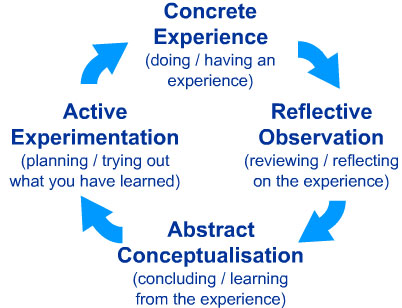Background
My teaching journey began in 2007 when I travelled to South Korea to teach English at a Korean academy. In the 22 months that I lived and worked there, I learned various approaches to teaching and interacting with children and teenagers in an education context. It was a steep learning curve because even though I had experience facilitating groups, had completed a course on teaching English as a second language and the academy’s induction training, I had very little teaching experience. This experience taught me important lessons about classroom management and delivering content to a very unresponsive teen audience. Some of the teaching ‘tips and tricks” I learned from my colleagues and mentors in this time, I still apply in lecturers today.
My career in higher education started in 2011 when I hired as a junior lecturer at the Department of Industrial Psychology at SU. This role afforded me the opportunity to obtain my masters and Ph.D. qualifications as well as my registration as an industrial psychologist, but the training and support offered by the institution has developed the efficiency with which I fulfill my role as an academic and lecturer. I have always aspired to serve others by facilitating and supporting their growth and development through my chosen profession (psychology). Even though I never planned to work in academia it is in this role that my interest and passion for teaching and learning as grown and found its application.
Teaching philosophy
I view my teaching philosophy as a fluid and malleable conceptualisation of who I am as a teacher and how I express this. My thoughts on education have evolved and changed as I have grown in my role, tested new methods, interacted with students and reflected on my teaching practice. To illustrate, Fox (1983) proposed four theories of teaching namely, the transfer theory, the shaping theory, the travelling theory and the growing theory. He developed these analogies from years of interviews and conversations with tertiary education teachers and formulated the four categories of personal theories in teaching. The two that stood out for me were the transfer theory and the growing theory. A simple definition of the former is when the student is viewed as a container to fill (transfer theory) and the latter implies an encouraging and supportive approach that emphasises the student’s personal growth and development (growing theory). Reflecting on these theories I recognised that my initial approach to teaching-focused very strongly on the transfer of knowledge through the act of teaching. I saw my role as having to simplify concepts and make them more digestible. I was shocked when, despite my efforts to prepare, structure and deliver the content effectively, my students did not do well. Even though this approach was not inherently bad I started to realise that the means of transfer, as well as the student, also play an important role in the learning process.
Hence, my approach has evolved into a student-directed style with the express purpose of fostering student engagement. This is regarded as the extent to which students are involved in activities and conditions that are likely to generate high-quality learning (Krause & Coates, 2008). My approach is also strongly influenced by Kolb’s Experiential Learning Model. Kolb proposes that a new skill is best learned when individuals understand it both conceptually and behaviourally, have opportunities to practice it, receive feedback on how well they are performing it and use it often enough for it to become integrated into their behavioural repertoire (Osland, Kolb & Rubin, 2001). This theory underpins my teaching practice and the supporting learning activities and assessments I use.

My goal as a lecturer in Industrial Psychology is to develop competent, professional, informed behavioural scientists (i.e. Industrial psychologists and HR practitioners) that are critical thinkers, thoughtful problem solvers, and lifelong learners. To achieve this I assume the responsibility of creating an environment in which students feel respected, are treated as adults and are provided with learning opportunities, activities and assessments that will foster and equip them with the requisite knowledge and skills and that reflect the world of work they will one day encounter.
